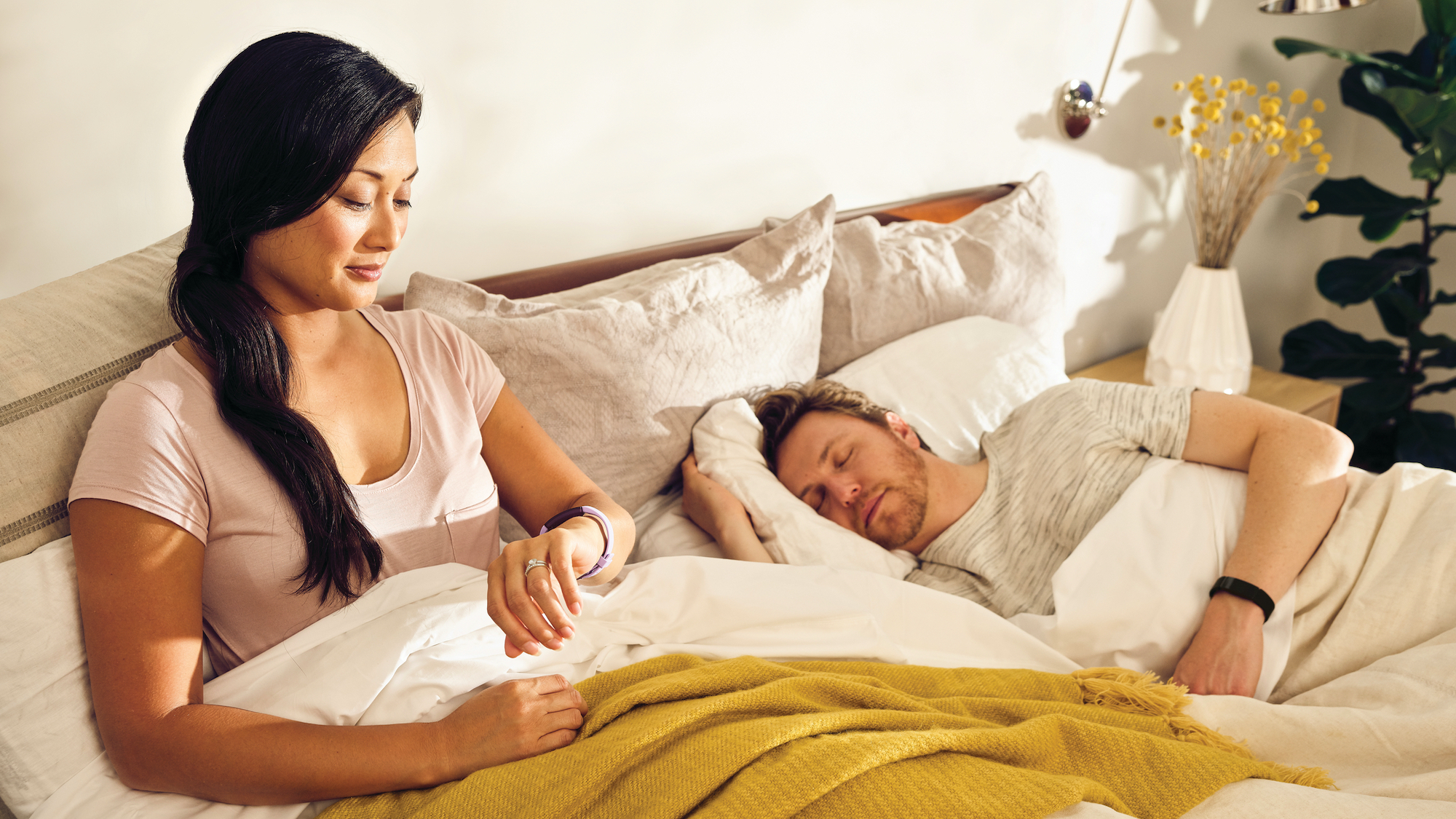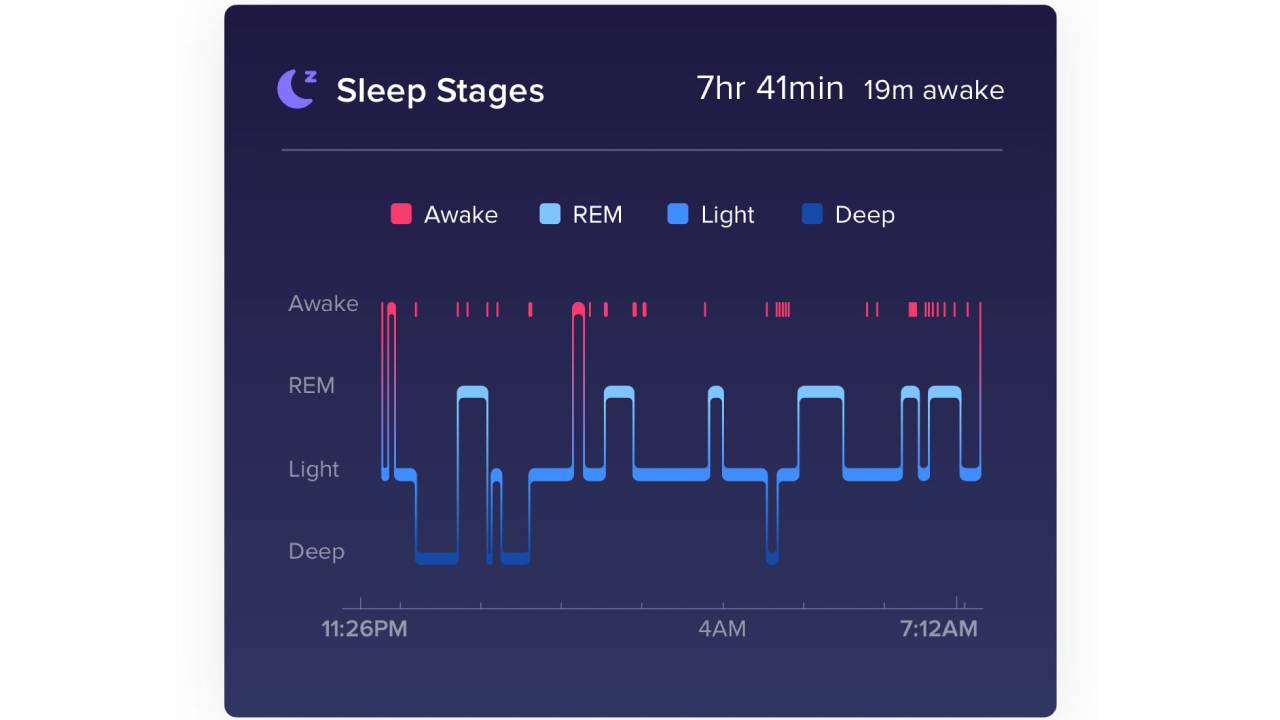
Whether you sleep like a baby or you find it hard to drift off at night, we’re always on the lookout for ways to improve our sleep quality and quantity. Sleep is so important for your physical and mental health, and keeping track of how you sleep each night with the best sleep trackers can make a world of difference to your wellbeing.
Wearing a sleep tracker to bed can help you gain valuable insights into your sleep patterns and habits. Having concrete evidence and data to back up why you had a good or bad night’s sleep can open your eyes to what you’re doing right or wrong when it comes to your nighttime routine. In the long run, having a sleep tracker can help you make positive changes to your daily life, so you get a rested night’s sleep and perform your best day after day.
Unfortunately, many people avoid sleep trackers because they don’t like wearing a watch to bed or they don’t want to invest in a gadget just for sleep. For the latter, the best fitness trackers like the Fitbit Charge 5 and the best smartwatches like the Apple Watch Series 8 have amazing sleep tracking features, so if you already have one of these, you can already get started with tracking your nightly habits.
Still not convinced? Here are 4 reasons why you should be tracking your sleep.
How do sleep trackers work?
Firstly, let’s quickly explain how sleep trackers work. Whether you’ve got a wearable on your wrist or you’re sleeping on a non-wearable tracker like the Withings Sleep Analyzer, sleep trackers use accelerometers to detect movement, oxygen and heart rate levels. By measuring these factors, especially how much movement you make while you sleep, this data analyses how much sleep you get, how many times you wake up in the night and your stages of sleep.
While there is some debate around how accurate sleep trackers are, the data they collect can offer interesting insights into your habits and help you make changes to your routine. Now you understand how sleep trackers work, here’s why you should be using them.
1. Insights into your sleep habits
The most important thing that sleep trackers do is record and analyse your sleep quality and quantity. Sleep trackers measure when you go to sleep and when you wake up, movement and disturbances in the night and your sleep stages. By recording when you fall asleep and wake up, you get a better insight into how long you slept for and by comparing this to how you feel the next day, this can give you an idea of how many hours of sleep you really need.

Getting a better understanding of your sleep stages is also valuable. Sleep occurs in multiple stages which determine how deeply and restfully you sleep throughout the night. By measuring the amount of REM or deep sleep you get each night compared to light sleep, this can help you identify any problem areas and make changes to your routine so you get more deep sleep to replenish your energy and memory levels.
2. Improves sleep hygiene
By gaining insights into your sleep habits, tracking your sleep can help improve your sleep hygiene. Many sleep trackers and their accompanying apps can track your nighttime and daytime activities and you might notice on days where you drank caffeine too close to bedtime had a negative effect on how you slept at night. Similarly, your sleep tracker will record what time you went to sleep and by comparing different nights, this can show you what time you should be turning in for the night so you feel more rested and refreshed. By using your sleep tracker for this information, you can make changes to your routine for more consistent quality sleep. See our rules for good sleep hygiene for more details.
3. Helps identify sleep issues
Using your sleep tracker to monitor your rest and heart rate can help you identify any sleep issues. By identifying irregularities like insomnia or sleep apnea, you can take this information to your doctor if you have any concerns, which will lead to them determining whether you need any testing or not. Of course, it’s important to remember that this data isn’t a substitute for a doctor’s evaluation or diagnosis but using a sleep tracker can encourage you to see a doctor if you’ve noticed any changes.
4. Personalised sleep recommendations
Wearable sleep trackers, specifically models from Fitbit, come with apps that can provide personalised sleep recommendations. By analysing your data, the app can score your sleep and offer suggestions for ways to improve your habits so you have a better night’s sleep. Interested in Fitbit’s sleep tracking? See how Fitbit tracks your sleep for more.







